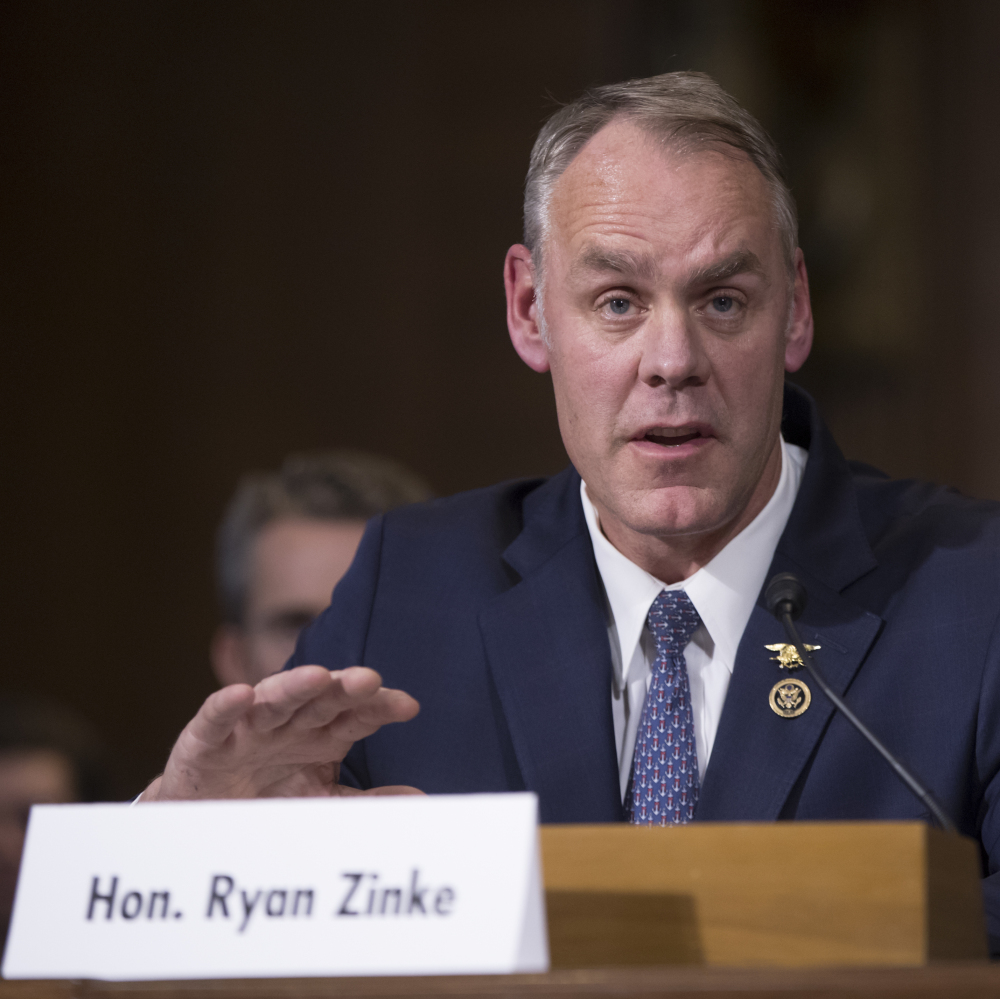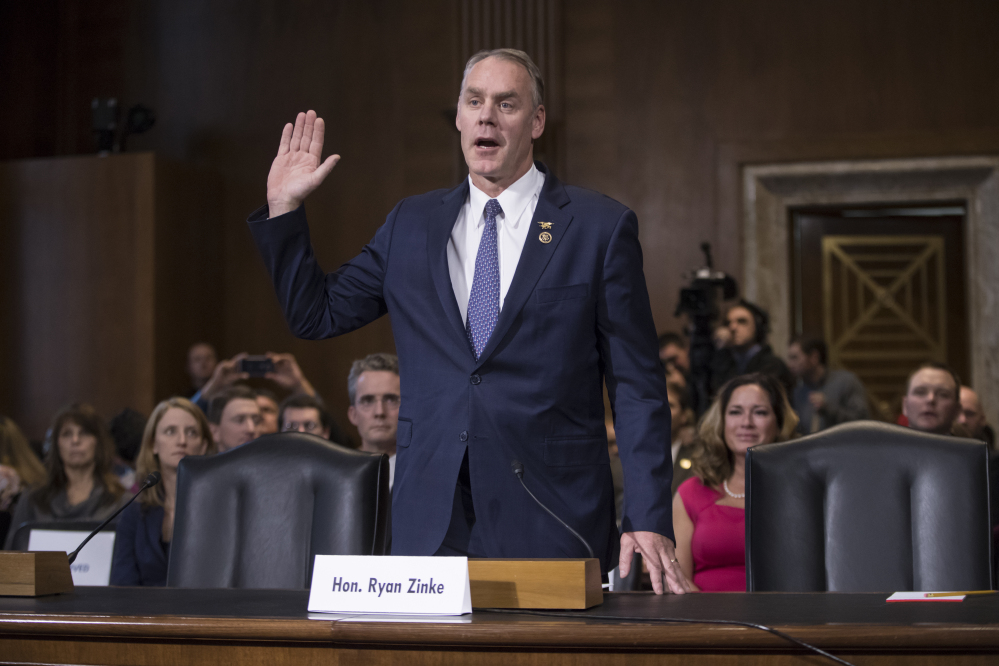WASHINGTON — Donald Trump’s choice to head the Interior Department on Tuesday rejected the president-elect’s claim that climate change is a hoax, saying it is indisputable that environmental changes are affecting the world’s temperature and human activity is a major reason.
“I don’t believe it’s a hoax,” Rep. Ryan Zinke told the Senate Energy and Natural Resources Committee at his confirmation hearing. “The climate is changing; man is an influence,” the Montana Republican said. “I think where there’s debate is what that influence is and what can we do about it.”
Trump has suggested in recent weeks he’s keeping an open mind on the issue and may reconsider a campaign pledge to back away from a 2015 Paris agreement that calls for global reductions in greenhouse gas emissions.
In contradicting Trump, Zinke cited Glacier National Park in his home state as a prime example of the effects of climate change, noting that glaciers there have receded in his lifetime and even from one visit to the next.
Still, he told Sen. Bernie Sanders, I-Vt., that there is debate about how much humans have influenced the climate.
Likely to win Senate confirmation, Zinke, 55, sketched out a variety of purposes for the nation’s vast federal lands, from hiking, hunting, fishing and camping to harvesting timber and mining.
The Interior Department and other U.S. agencies control almost a third of land in the West and even more of the underground “mineral estate” that holds vast amounts of coal, oil and natural gas.
An admirer of President Theodore Roosevelt, Zinke said management of federal lands should be done under a “multiple-use” model set forth by Gifford Pinchot, a longtime Roosevelt associate and the first chief of the U.S. Forest Service.
Zinke also pledged to tackle an estimated $12 billion backlog in maintenance and repair at national parks, saying parks and other public lands should be a key part of Trump’s infrastructure improvement plan.
But the former Navy SEAL said his most important task at Interior will be to “restore trust” between the agency and the states and Indian tribes it serves.
Send questions/comments to the editors.




Comments are no longer available on this story